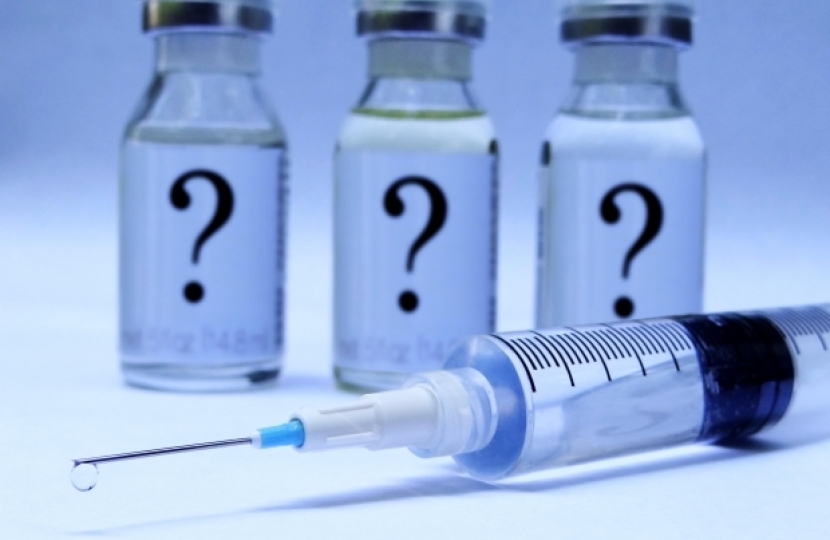
Vale of Clwyd MP Dr James Davies has been told by a leading figure in the NHS that Covid-19 could become “much more treatable” in the net six to 18 months.
In this week’s Health and Social Care Select Committee, James questioned Sir Simon Stevens, Chief Executive, NHS England and NHS Improvement, over a number of issues relating to the pandemic, including how he predicts the coming year will be.
James said:
“What is your working assumption as to the return of the NHS to normal operation, bearing in mind that vaccines are being deployed but there is the risk of waning immunity and new strains? How do you see the coming year or so?”
In his response, Sir Stevens provided much hope for the future.
He said:
“In the first half of the year, vaccination will be crucial. A lot of us in the health service are increasingly hopeful that in the second half of the year and beyond we will see more therapeutics. We will see more treatments for coronavirus. The ones that have already surfaced are well known - the corticosteroids, dexamethasone and the repurposed arthritis drugs. There are a number of others in the pipeline. It is possible that, over the course of the next six to 18 months, coronavirus becomes a much more treatable disease, with antivirals and other therapies, which, alongside the vaccination programme, hold out the hope of a return to a much more normal future.”
Welcoming the news, James said:
“It was very encouraging to hear Sir Stevens speaking so positively about the months ahead. He stressed the first half of the year will be mainly focused on the vaccine rollout, but that in the second half and beyond we will see more therapeutics and more treatments for coronavirus.
“The progress the UK Government has made in tackling this pandemic in under 12 months is something we must all keep in mind on days when we are struggling with lockdown restrictions. As Sir Stevens highlighted “we are in a completely different place thanks to the brilliant science in the UK”. Prior to the Covid vaccines, one of the fastest developments of human vaccines was mumps in the 1960s, which took four years!”
James also questioned the NHS Chief Executive over whether administering the second dose of vaccine will slow down the roll-out of the first dose to the remaining groups 5 to 9 and was told that the expectation is that “we will do two things simultaneously as we move to working-age adults more broadly.”
Speaking afterwards, James said:
“Whilst it is crucial that those who have now received the first vaccine, receive the second doses in 12 weeks, this must not delay vaccination for those in the remaining groups.
“Sir Stevens seemed confident that this would not be the case. He said when there is more supply, vaccinations will be made available in many different outlets, including high street pharmacists . He also said that the larger vaccination centres that have been established “will be going all guns blazing for increasing numbers of people”. Quite rightly the plan in England is to give people choice and combine accessibility with scale as supply increases, and this needs to be the case here in Wales too.”
During the oral evidence session, James also questioned Sir Stevens over the impact of the pandemic on very long waits for NHS procedures. This is of particular concern in North Wales, where large numbers of patients were waiting in excess of a year for NHS procedures even in advance of the pandemic.

